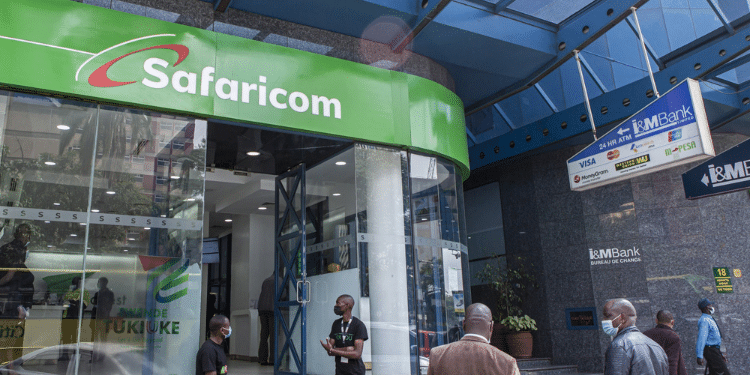Revolut has formally submitted a Section 12 application to the South African Reserve Bank’s Prudential Authority. If approved, this would grant it the right to pursue a full commercial banking licence, making it its first anywhere on the African continent.
For South Africa’s R900 billion ($50 billion) banking industry, where digital penetration still lags at 20–30% despite near-universal smartphone access, this move signals an incoming disruption from one of the world’s most aggressive fintechs.
Backed by ex-Aviva executive Jacques Meyer as CEO and the impending appointment of industry heavyweight Dr Gaby Magomola as Chairman in 2026, Revolut isn’t approaching South Africa as an experiment. It’s approaching it as a strategic gateway to Africa’s financial future.
A Long Road to Approval
South Africa’s regulatory process is exceptionally rigorous. The Section 12 submission launches a sequence of reviews covering capital adequacy (Revolut needs at least R250 million upfront), governance standards, risk controls, and long-term viability.
Given that Revolut now operates with banking permissions in the UK, EU, Australia, and Japan, its global credentials strengthen its case.
Yet SARB will scrutinise its fraud and scam-compliance record, an area where Revolut attracted criticism in the UK between 2023 and 2025.
If the process runs smoothly, preliminary feedback could land by mid-2026, with full approval possible in late 2026 or early 2027.
A banking licence in South Africa would ultimately allow Revolut to operate as a deposit-taking, lending, and multi-asset financial institution, fully regulated under domestic law.
What South Africans Could Gain
Should SARB grant the licence, Revolut’s offering in South Africa would expand far beyond e-money services or prepaid cards.
Its global model suggests a rapid rollout of multi-currency accounts, cross-border transfers, high-yield savings, low-cost cards, and in-app crypto and stock trading.
South Africans who already complete more than 10 million digital transactions monthly could gain:
• Multi-currency wallets for ZAR, USD, EUR, and 30+ global currencies, alongside low-cost FX for the 2.5 million–strong South African diaspora.
• Everyday banking tools, including instant cards, spending analytics, Apple/Google Pay integration, and micro-budgeting, which are highly attractive in a country where the youth drive digital financial adoption.
• Investment and crypto trading, overseen by the FSCA, tapping into South Africa’s 19.6% crypto adoption rate.
• Data-driven microloans, using Revolut’s alternative credit scoring, which could extend affordable credit to informal traders and first-time borrowers.
Revolut’s recent trajectories in Mexico and India show how quickly it moves once given the green light. With digital onboarding and eKYC, millions of unbanked South Africans could join the formal financial system within months.
READ ALSO:What Discovery Bank’s In-App Crypto Trading Means for 1 Million+ South Africans
Why This Disrupts the Status Quo
South Africa’s banking landscape is dominated by four legacy institutions made up of Absa, FNB, Nedbank, and Standard Bank controlling about 80% of all assets.
Yet challengers such as Capitec, TymeBank, and Discovery Bank have already proven that low fees and digital efficiency can shift market share.
Revolut adds an entirely new dimension:
- A $75 billion valuation,
- Global liquidity,
- Zero-fee international transfers,
- Integrated crypto offerings, and
- An app ecosystem with 100-country ambitions.
Analysts suggest that with the right execution, Revolut could carve out 5–10% market share within three years, a level of disruption that would force incumbents to slash FX fees, improve digital offerings, and expand low-cost products.
Even SMEs stand to benefit. Revolut Business is one of its fastest-growing segments globally, and for South African small enterprises currently struggling with credit, high fees, and limited cross-border tools, it represents a promising frontier.
A Potential Catalyst for Inclusion and Job Creation
The impact could go far beyond competition. A fully licensed Revolut could meaningfully advance financial inclusion in a country where 3.9 million adults remain unbanked and a R1.8 trillion informal economy operates largely in cash.
AI-driven microloans for spaza shops, township traders, and informal merchants could pull large sections of the population into the formal financial system. Rewards-based savings (akin to Discovery’s Vitality model) could encourage financial discipline.
Revolut’s global expansion plans include adding 10,000 jobs by 2030, with South Africa potentially securing several hundred roles in compliance, engineering, and customer support, which would be critical in a country facing 32.1% unemployment.
If SARB Says Yes: A Blueprint for Africa’s Digital Banking Future
A banking licence for Revolut in South Africa wouldn’t just be a single-market win. It would almost certainly become the launchpad for expansion into Nigeria, Kenya, Egypt, Morocco, and beyond, mirroring its European and Asia-Pacific rollouts.
For South Africa, it could mean lower fees, faster innovation, increased financial inclusion, and a new wave of competitive energy in a sector often criticised for rigidity and high costs.
As CEO Jacques Meyer put it, “South Africans are ready for a new approach to banking.”
With £3.1 billion in revenue behind it and a global-first mindset, Revolut could help reshape what banking looks like from Sandton to Soweto.
The question now:Will SARB open the door, and if it does, will South Africa’s giants hold their ground?
Revolut: Banking, Business & User Insights
Revolut Bank continues to expand globally with digital-first accounts, while Revolut Business offers multi-currency accounts, invoicing, and international payments for SMEs and startups. User feedback from Revolut reviews highlights fast transfers, low FX fees, and an intuitive app.
When comparing Revolut vs Wise, Revolut is favoured for broader features like budgeting, crypto, and stock trading, while Wise leads on transparent FX rates.
New customers can easily begin through Revolut Sign up, which requires ID verification in-app. For investors tracking fintech markets, Revolut stock remains privately held, with no publicly traded shares yet.
Ronnie Paul is a seasoned writer and analyst with a prolific portfolio of over 1,000 published articles, specialising in fintech, cryptocurrency, climate change, and digital finance at Africa Digest News.






Leave a Reply